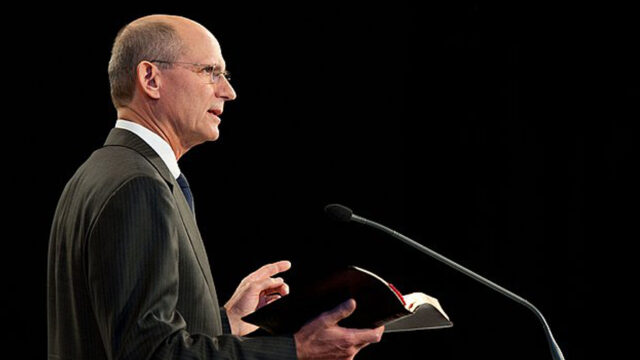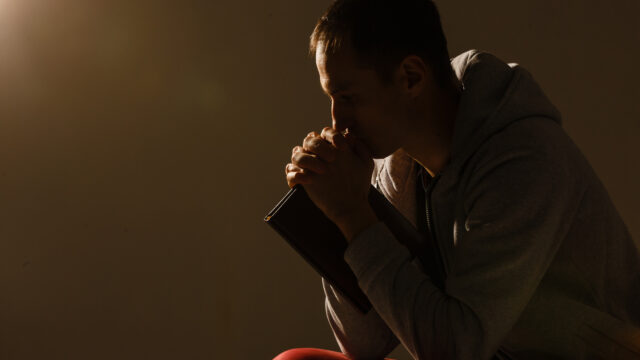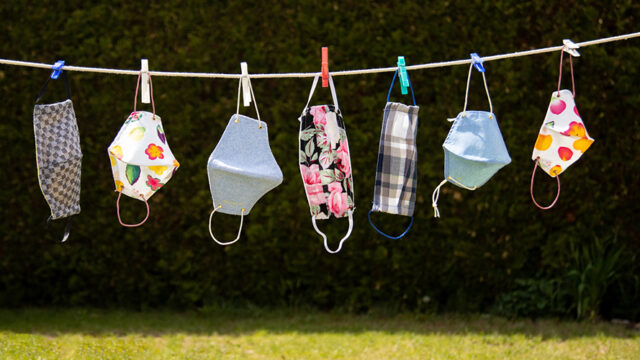Does what you believe make a difference?

A hypothetical: an ICU unit has three sick-unto-death COVID-19 patients—a rich but unethical entrepreneur who creates jobs, a 17-year-old with terminal cancer, and a scientist doing crucial research on Alzheimer’s—but it has only two ventilators left. Who gets the device; who doesn’t?
A modern secular society has a guiding principle here: survival of the fittest. According to the evolutionary model of origins, Mother Nature filters out the weak. They die off in order to allow the fittest to survive.
Hence, the moral dilemma is, really, no dilemma. We help the fittest to survive, while allowing the weakest to perish. In so doing we’re following “natural law.”
This idea has a history, too. Once Darwin’s theory of evolution took hold of the Western mind, particularly in England, it became the basis for justifying policies that worked against the needy. Dubbed “Social Darwinism,” the idea, based on science, was that by helping the weakest and the less fit to survive, society was not only going against nature but hurting itself in the process.
How convenient, too, for the ruling classes in England, many of whom were not overly amenable to helping the impoverished and unwashed masses to begin with. “It is a curious fact,” wrote John C. Green, “that all, or nearly all, of the men who propounded some idea of natural selection in the first half of the nineteenth century were British. . . . The fact seems explicable only by assuming that the British political economy, based on the idea of survival of the fittest in the marketplace, and the British competitive ethos generally predisposed Britons to think in terms of competitive struggle in theorizing about plants and animals as well as man.”
Before Darwin, Thomas Malthus’ influential Essay on the Principle of Population (1798) argued that as the population grew, humanity would run short on food. That is, unless famine, war, and disease culled the species. Thus, the almost 2,000-year-old Christian idea of ameliorating the plight of the poor and the hungry, however well-meaning, made things worse because these actions were contrary to “nature” itself.
“[W]e build asylums for the imbecile, the maimed, and the sick;” bemoaned Darwin, “we institute poor laws; and our medical men exert their utmost skill to save the life of every one to the last moment. There is reason to believe that vaccination has preserved thousands, who from a weak constitution would formerly have succumbed to small-pox. Thus the weak members of civilized societies propagate their kind.”
Darwin’s theory provided the ruling classes in England at the time (nineteenth century and even into the twentieth) scientific justification for everything from racism, colonialism, laissez-faire capitalism, and cuts to welfare. In fact, some (and not only in England) took the logic further. Instead of just letting Mother Nature weed out the weak, why not help her along? The idea became known as “eugenics.”
However out of vogue these ideas today, the question remains: Who gets the ventilator? In any evolutionary model, the answer’s easy: the entrepreneur and the scientist, who else?
What, however, should a society run by Christian values, which affirm the worth and dignity of all humans, do? Who in the sight of God is more valuable: the entrepreneur, the teenager, or the scientist? Even if one argues that this is a false question, and that all are equal before God—fine. But that position makes the dilemma only harder. Who, among equals, gets the ventilator?
How could Christian values be applied here? One of the three could, out of self-denying love—“not looking to your own interests but each of you to the interests of others” (Phil. 2:4)—choose to reject the ventilator. In contrast, in an evolutionary model, the strongest would fight, even use violence if necessary, to get it.
The latter would, no question, have a short-term advantage over the former. Very short-term, though.








